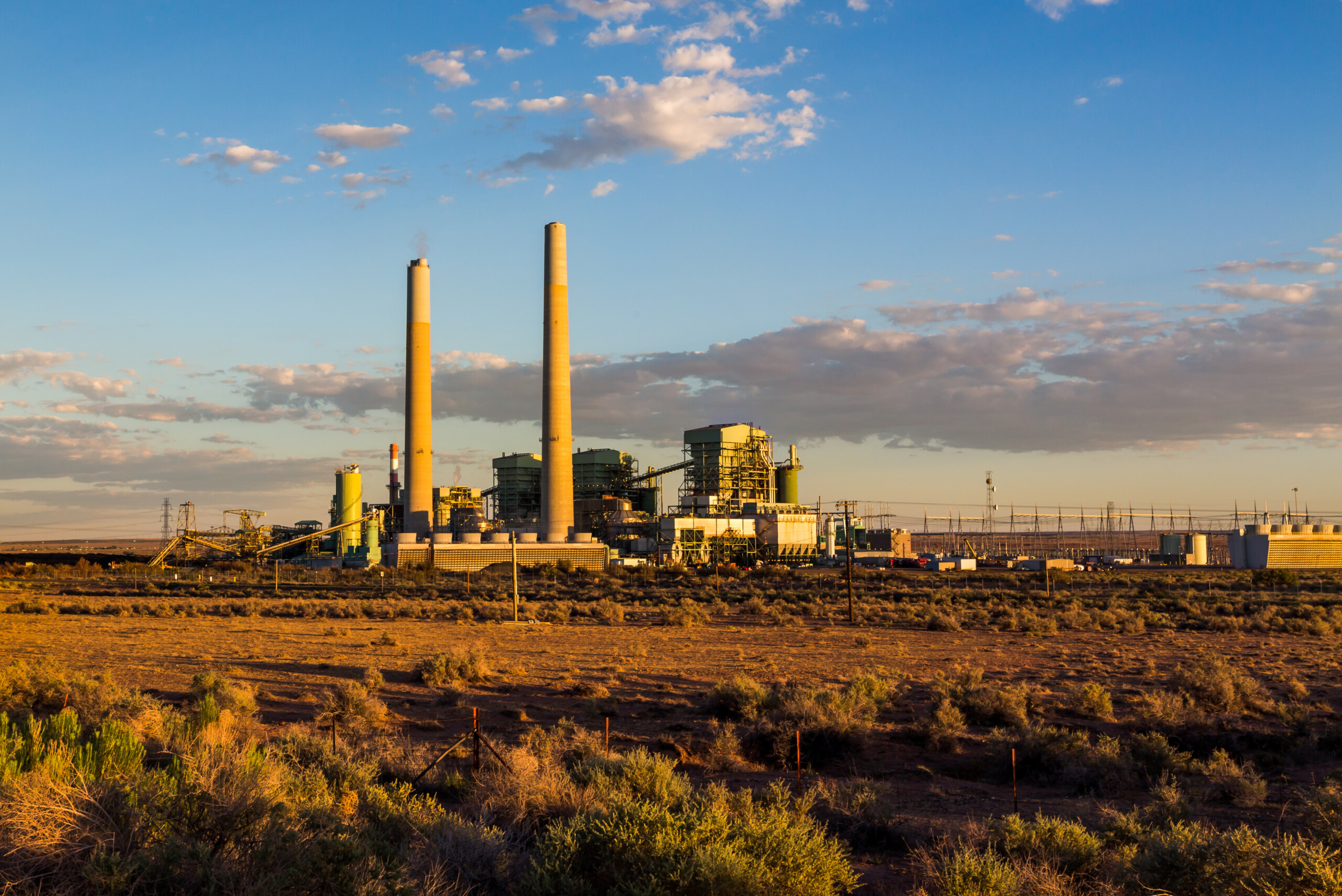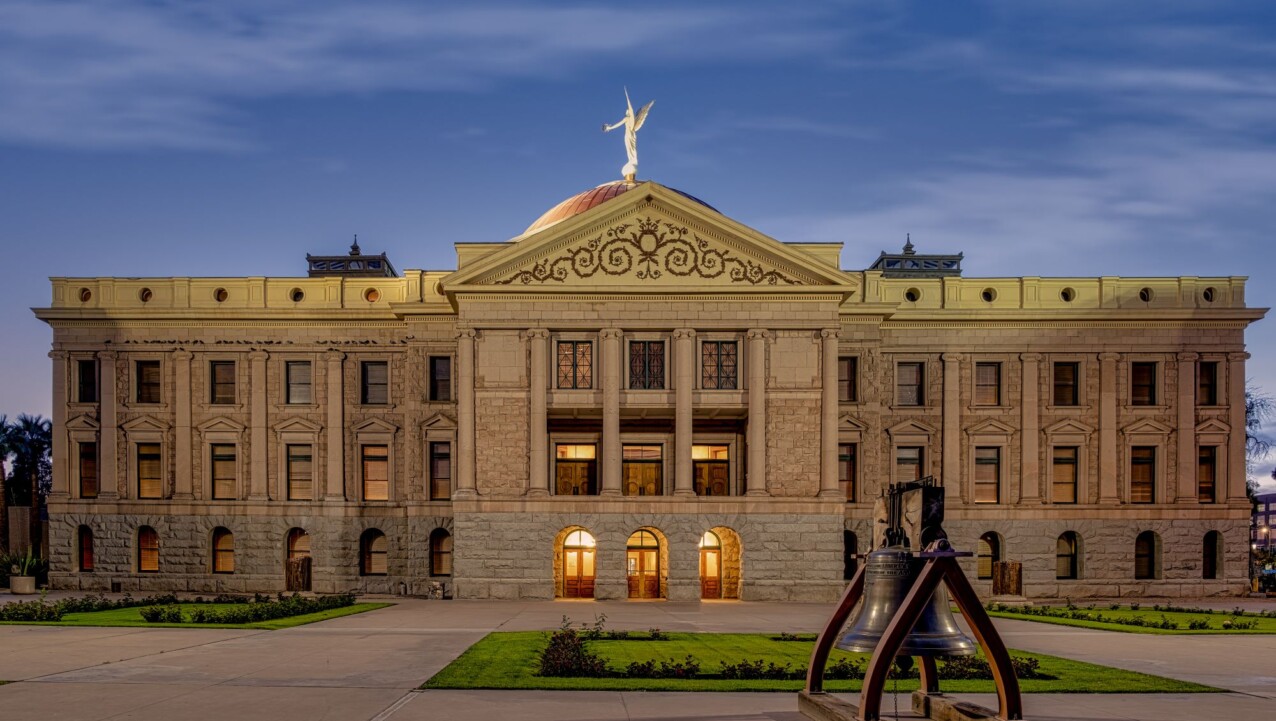August 15, 2024
July 22, 2024, marked a somber milestone: the hottest day ever measured. On that date the average global temperature was approximately 62.9 degrees Fahrenheit, breaking the previous record which was set just the day before. While the news was shocking for some, it wasn’t for many Arizonans. The temperature that day in Phoenix was 111 degrees; with an average temperature of 101.1 degrees, July was the second-hottest month on record for the fifth-largest city in the nation.
Extreme heat has become the norm in Arizona. Last year was the hottest summer on record for the Grand Canyon state, and this year is on track to surpass that. The consequences are dire: Maricopa County reported 645 people died due to heat-related illness in 2023, and extreme heat threatens Arizona’s labor productivity, roadway infrastructure, tourism industry, real estate market, and quality of life.
Extreme heat also poses threats to the security and reliability of our electricity system. Weeks of triple-digit temperatures drive up demand for electricity during periods of grid stress and strain generation and transmission equipment. Increased wildfire risk driven by extended drought and high temperatures threatens significant financial liability risks for utilities, and threatens the ability to provide affordable, reliable service.
The existential threat extreme heat poses to all Arizonans is clear, yet the state’s utilities – and the agency that regulates them – continue to embrace one of the most significant drivers of climate change: burning fossil fuels to generate electricity.
Electric utilities touch almost every aspect of our lives – our ability to stay warm or cool in our homes, our access to critical information and resources through our phones, computers, and TVs, and the ability to drink fresh water or cook our food.
With this level of influence comes responsibility and the need for accountability through regulatory oversight. Many electric utilities are “regulated monopolies,” meaning that one utility has an exclusive right to serve a particular area, devoid of competition, in exchange for government oversight. This regulatory process is supposed to ensure that these utilities act in the public interest and treat customers fairly.
Arizona has abundant opportunities to expand clean energy development, including solar and flexible load resources, limit Arizona’s reliance on out-of-state fossil fuels, and avoid exposure to volatile fossil fuel prices. Investments in clean energy are critical for the quality of life for Arizonans. Fighting climate change by providing clean electricity to our communities is one way our Arizona utilities and the ACC can do their fair share to address the climate crisis.

Arizona’s Changing Regulatory Landscape
The Arizona Corporation Commission (ACC) is an elected body of five members that oversees public utility companies, the incorporation of businesses and organizations, and railroad and pipeline safety. The ACC is charged with ensuring the “convenience, comfort, and safety, and the preservation of the health” of utility customers and employees. The ACC should be on the front lines of fighting climate change, improving air quality, and ensuring energy affordability through its regulation of monopoly utilities, which contributed 25% of greenhouse gas emissions in the United States in 2022. This regulatory process is critical to ensure that utilities are acting in the best interests of customers and the public interest.
The purpose of the ACC is to regulate utilities and to protect Arizonan’s health and wallets, but the Commission is increasingly abandoning this watchdog role.
The majority of the ACC members aren’t focused on keeping utilities affordable or addressing climate change and pollution. Instead, they’re actively reducing the ACC’s authority over utilities, putting customers at risk without protection from high bills and encouraging utilities to continue to invest in fossil fuels without considering other options. And many ACC decisions are made without stakeholder involvement, going so far as to ignore suggestions and discourage participation.
An example of the ACC putting the profits of utilities before the people of Arizona is the ACC’s recent decision that most methane gas plants in Arizona are exempt from the requirement to obtain a Certificate of Environmental Compatibility. The Line Siting Committee’s certificate of environmental compatibility process requires a thorough environmental review for major energy facilities and their potential costs to consumers and ensures that communities, including those already disadvantaged and burdened by existing energy projects, have a voice in the construction of new facilities. The 4-1 Commission decision, in response to a request by UniSource Electric, allows the utility to build a 200-megawatt methane gas plant without obtaining a Certificate of Environmental Compatibility. The decision also exempts similar facilities built by other utilities in the future.
The Commission decision overturned a 9-2 ruling by the state’s Power Plant and Transmission Line Siting Committee requiring the certificate and eviscerated an oversight process in existence in Arizona since 1971. This process has historically been an important opportunity for affected communities to weigh in on the impacts of new facilities. For example, the community of Randolph secured a settlement in 2023 from Salt River Project to address impacts of its expansion of Coolidge Generating Station. This not only reduced the number of gas turbines proposed at the site from 16 to 12, but provided Randolph with millions of dollars for scholarships, a home rehabilitation program, a community development plan, and more.
The Commission’s decision in the UniSource case removes the opportunity for communities to address harms and receive benefits from energy projects. By eliminating this process, electric utilities can now build large methane gas facilities in your neighborhood without engaging with the public, local governments, or assessing environmental compatibility through this important process.
This is not the only precedent the Arizona Corporation Commission wants to discard.
Nearly 20 years ago, the ACC adopted the Renewable Energy Standard and Tariff (REST) Rules. These rules require electric utilities to generate 15% of their energy from renewable sources by 2025 and report on their progress. Though the REST rules were a step in the right direction for Arizona, they are far less ambitious than the level of clean energy development necessary to address climate change. Still, since 2006, the rules provided a base level of support for clean energy that benefit customers.
In January, however, instead of updating REST, the Commission moved to terminate the rules, which would eliminate the only renewable energy or standard in Arizona. This puts Arizona significantly out of step with the rest of the country. The agency attempted to eliminate the REST rules unilaterally before the Commission’s attorney informed Commission members that they could not legally do so. The ACC is now engaging in the legally required rulemaking to scrap the REST Rules and other key energy efficiency rules like it.
At the same time, the Commission set its sights on eliminating Arizona’s energy efficiency and demand side management rules, which were adopted in 2010. These rules require utilities to meet cumulative annual targets for electricity savings equivalent to at least 22% through 2020. According to the U.S. Department of Energy, energy efficiency “saves money, increases the resilience and reliability of the electric grid, and provides environmental, community, and health benefits.” But rather than update and enforce better energy efficiency targets, the Commission’s move to end the efficiency rules would leave the utilities to set their own cadence for energy efficiency progress, which will likely limit the program available to customers looking to reduce their bills through energy efficiency improvements.
And there’s more – including the approval of an historic 9.4% rate hike for Southwest Gas customers and allowing Arizona Public Service, the state’s largest utility, to modify a 20-year-old certificate of environmental compatibility without a re-hearing or public comment. The ACC also approved a mechanism for two Arizona utilities that will allow them to collect millions from customers without first proving whether the project is reasonable in a rate case. This decision was so egregious that it prompted Arizona’s attorney general to ask the Commission to reconsider due to what it saw as the mechanism’s lack of conformity with Arizona’s Constitution.

WRA is working hard to respond to the shifting environment at the Arizona Corporation Commission and push utilities to accelerate their plans to bring on clean energy and reduce pollution. Arizonans have a say in who their commissioners are. Three seats are open this year, and WRA encourages voters to make their voices heard this November.
WRA also recently filed a petition for a rehearing of the ACC’s UniSource decision. Apart from WRA’s concerns that the decision eliminates key environmental protections and community engagement opportunities, WRA believes the legal basis for the decision is flawed. WRA’s petition cites several legal errors in the Commission decision. Chief among these is that the decision violated the ACC’s constitutional mandates, as well as Arizona law, and that the decision is unsupported by well-established evidence.
Arizona can’t wait for the energy transition.
Unchecked climate change will devastate our communities by threatening reliable electricity service and taking the lives of hundreds and potentially even thousands of people each year. Our state is too valuable not to invest in a clean energy future. The longer we wait to reduce climate pollution, the more challenging the task becomes and the more devastating impacts we allow to occur. Waiting to act will only raise the costs of getting emissions under control but taking advantage of currently available federal subsidies will help lower the cost of the transition. Acting today – when generous federal programs and tax credits are available – will make the transition more cost effective.
The consequences of climate change are enormous, and the costs of reducing emissions are worth it. As Arizonans, we do this work because we love where we live and believe that Arizona can have a bright climate future – one that protects our communities from extreme heat, unhealthy air, and supports thriving economies.




